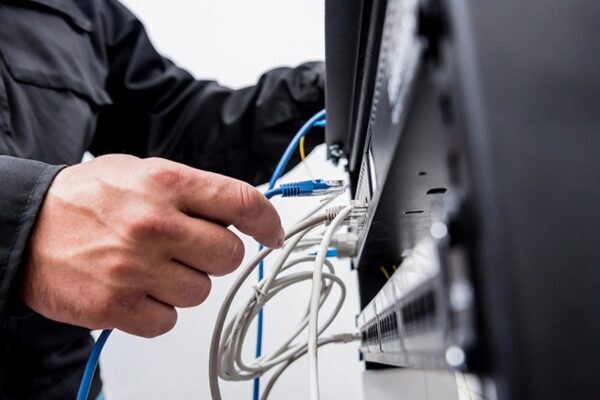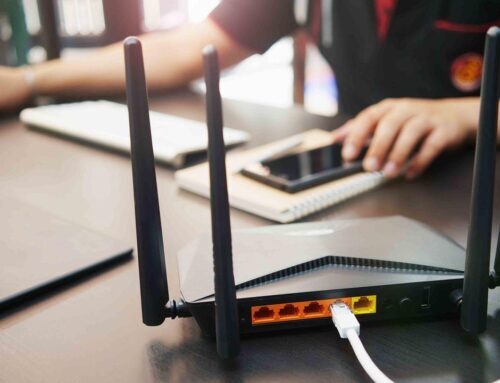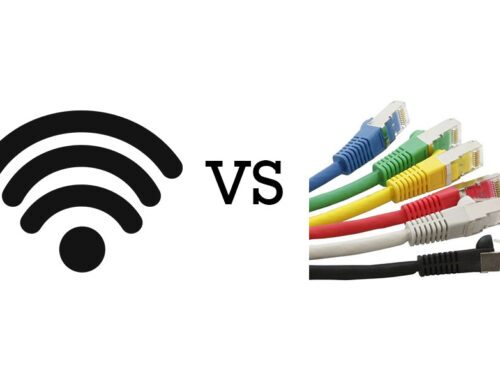Having secure Wi-Fi access is a must for businesses, including restaurants. It enhances your restaurant’s operations and can potentially draw in more customers. Modern consumers are increasingly growing accustomed to having free Wi-Fi while out in public, emphasizing the importance of optimizing your restaurant’s network.
At EIRE Systems, we offer customized restaurant Wi-Fi solutions to ensure your business runs at optimal levels. Learn how to update your restaurant WiFi and explore methods of maintaining and optimizing your network.

The Crucial Role of Wi-Fi in Restaurants
Restaurant Wi-Fi is no longer a surprise benefit for diners. It’s an expectation, meaning not offering guest Wi-Fi can impact customer loyalty and restaurant reviews. However, your internet access also impacts how effectively your restaurant runs.
For example, many restaurants use Wi-Fi for operational tasks, including ordering supplies, taking online orders, managing in-house kiosks and running POS systems. Restaurants also now commonly use Wi-Fi to offer digital menus and stream music.
Simply put, Wi-Fi for restaurants offers too many benefits to ignore. Without strong Wi-Fi networks, you risk losing business or receiving negative guest feedback.
Upgrading Your Network Infrastructure
Updating your network’s infrastructure can help improve your restaurant’s Wi-Fi signal, increasing guest satisfaction and enhancing business operations. Explore the following tips on updating and maintaining your network for optimal performance.
Planning Your Network Layout: The Blueprint for Wi-Fi Success
Assess your current restaurant Wi-Fi setup to ensure secure Wi-Fi for customers and employees. Identify specific requirements, such as what types of devices need Wi-Fi and the average number of Wi-Fi users at any given time. You should also track trends, including peak usage times and which areas of your restaurant need the strongest signal.
Several methods are available to assess your current Wi-Fi performance, including speed tests, customer feedback and professional Wi-Fi assessments. For example, EIRE Systems offers expert Wi-Fi assessment services to diagnose, analyze and enhance your network’s speed and security.
Additionally, deciding the best placement for your Wi-Fi access point can improve your restaurant’s Wi-Fi signal. Bad placement can result in dead zones or inconsistent performance. However, using a strong placement strategy can alleviate these concerns. Consider the following steps to develop a strategy:
- Conduct a site survey. This involves mapping your restaurant’s layout to create a blueprint for potential placement options.
- Identify high-traffic areas. Next, list high-traffic areas that require strong signals and identify potential obstacles to develop a comprehensive network plan.
- Determine optimal placement. Choose spots for access points that cater to your restaurant’s Wi-Fi needs. Consider ceiling height and building materials to prevent network complications or disruptions.
- Plan cable routing. If applicable, plan cable routing for wired backhaul connections to enhance data transmission within your network.

Wired vs. Wireless: Choosing the Right Network for Your Restaurant’s Needs
You should also consider what type of network best suits your restaurant’s layout and devices. There are two main types to choose from.
Wired Networks
Also known as Ethernet, wired networks offer superior speed and reliability. They’re ideal for critical systems, including POS devices and kitchen displays, that you can’t afford to lose due to a bad connection. However, because wired networks require physical cables, they offer less flexibility and may require professional installation to work properly.
Wireless Networks
Wireless networks, or Wi-Fi, offer flexibility for mobile devices, which is mainly what your guests will be using. They’re also easier to deploy and expand if increased coverage is needed. However, Wi-Fi is more susceptible to interference than Ethernet. It also may not be suitable for high-bandwidth applications, such as security cameras or video streaming.
Calling in the Experts: When DIY Isn’t Enough
Determining the best Wi-Fi design and layout for your restaurant is more than just plugging in a Wi-Fi access point. It’s a process that involves complex configurations, security protocols and optimization techniques. Hiring an expert who understands this process can ensure the correct completion of these tasks.
Other benefits of professional installation include:
- Guaranteed performance. Ensure your access to the internet offers maximum speed, coverage and reliability.
- Strong security. They can also implement robust security measures that protect your customers’ and restaurant’s sensitive information.
- Ongoing support. When you use professional installation, the company often provides ongoing monitoring and troubleshooting to proactively identify issues, keeping your network running smoothly.
Best Practices for Maintaining and Optimizing Restaurant Wi-Fi
After properly updating your restaurant’s network, it’s important to maintain and optimize your connection. Consider the following Wi-Fi network maintenance tips to optimize performance:
- Conduct regular maintenance. Routinely check your Wi-Fi signal and all relevant equipment to ensure it is functioning properly and if necessary, relocate the Wi-Fi access point to improve coverage.
- Perform firmware updates. Firmware updates fix bugs, mitigate vulnerabilities and improve functionality for your Wi-Fi. Update your system to the latest firmware to ensure network optimization.
- Utilize channel optimization. Wi-Fi channels are frequency ranges that wireless devices use for communication. Determine the best channels for your network to boost data transmission and avoid interference or crashes.
Additionally, monitoring network usage lets you identify and troubleshoot issues before they cause major network outages. It also helps you determine appropriate security measures to protect your restaurant’s information, including your customer database.
For example, guests may use your Wi-Fi to work, access their bank account or log in to social media. Properly implementing Wi-Fi security measures prevents this information from falling into the wrong hands. Combining strong security with easy, clear usage instructions and fast access to the Internet via your restaurant network can further increase guest satisfaction and attract new customers.

How EIRE Systems Can Update Your Restaurant Wi-Fi
As a leading provider of Wi-Fi design services for restaurants, EIRE Systems can help you update, maintain and optimize your business’ internet access. This ensures you won’t have to worry about an unreliable or unsafe connection disrupting business operations or harming customer information.
Using their vast expertise and training, our professionals can develop customized solutions and offer reliable support to transform your restaurant’s Wi-Fi experience. Partner with EIRE Systems today to optimize your Wi-Fi performance, enhance customer satisfaction and drive business growth.
Don’t Let Bad Wi-Fi Spoil Your Recipe for Success
Updating, maintaining and optimizing your Wi-Fi network keeps your restaurant running smoothly, protects your data and boosts customer satisfaction. By partnering with EIRE Systems, you can access customized network solutions and ongoing support, alleviating unreliable or poor connection concerns.
Boost your restaurant’s Wi-Fi network today. Explore our website or request a consultation for more information.
About the Author: EIRE Systems
EIRE Systems is a leading independent provider of professional IT, AV and Access Security services to the financial, insurance, manufacturing, health care, retail, construction, hospitality, commercial real estate, legal, educational and multinational sectors in Japan and throughout the Asia Pacific region. EIRE Systems has expertise across a wide spectrum of Information Technologies, with a track record for successfully completing hundreds of assignments since its establishment in 1996.



